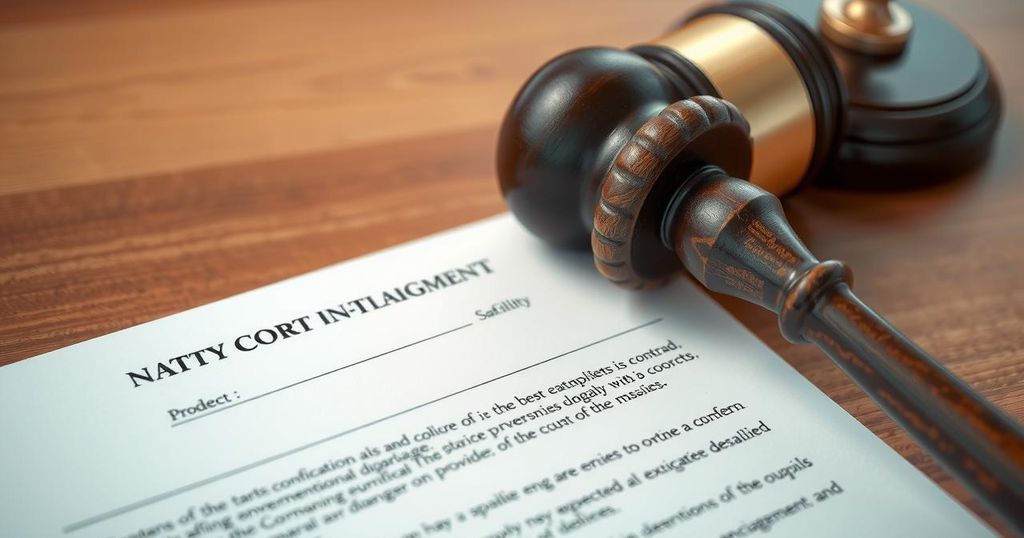Syria’s interim president, Ahmad Al-Sharaa, signed a temporary constitution on March 13, 2025, placing the country under Islamist rule for five years following HTS’s insurgency against Assad. While incorporating provisions for freedom of expression, the constitution maintains Islamic law as a primary source of jurisprudence. A committee will draft a permanent constitution, with international concerns regarding inclusivity and the protection of minority rights lingering.
On March 13, 2025, Syria’s interim president, Ahmad Al-Sharaa, signed a temporary constitution establishing a five-year rule under the Islamist group Hayat Tahrir al-Sham (HTS). This decision follows HTS’s successful insurgency that ousted former leader Bashar Assad. The interim government, predominantly led by former HTS members, aims to consolidate authority while addressing various instability concerns within the country.
The constitution includes provisions that maintain aspects of the original document, such as the requirement for the head of state to be Muslim and Islamic law as the main source of legislation. However, the document also introduces guarantees for freedom of expression and the press, suggesting an attempt to balance civil liberties against the prevailing political tumult.
A committee has been established to draft a permanent constitution, although its potential inclusivity regarding Syria’s diverse political and ethnic communities remains uncertain. The interim constitution aims to outline a clear timeline for transitioning out of the interim phase. Al-Sharaa has indicated a potential three-year period for rewriting the constitution and up to five years for conducting parliamentary elections.
Additionally, Al-Sharaa’s recent agreement with the U.S.-backed Kurdish-led authorities marks a significant step towards unifying military forces and establishing a ceasefire. This pact comes amid reports of civilian casualties resulting from retaliatory actions during an insurgency against Assad loyalists.
Despite changes in leadership, international actors, particularly the United States and European nations, are cautious about lifting sanctions until assurances are made regarding the establishment of an inclusive political framework that protects minority rights amid the concerns of ongoing instability in the region.
In conclusion, Syria’s interim constitution signed by Ahmad Al-Sharaa signifies a new phase under HTS rule for five years while attempting to maintain certain freedoms. The establishment of a committee to draft a permanent constitution raises questions about inclusivity for diverse Syrian communities. Furthermore, the agreement with Kurdish authorities underlines attempts towards unity amidst ongoing challenges, but international skepticism regarding the new leadership’s commitment to democracy and minority rights persists.
Original Source: apnews.com






